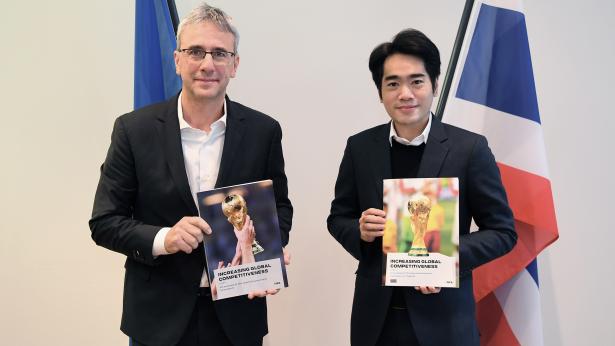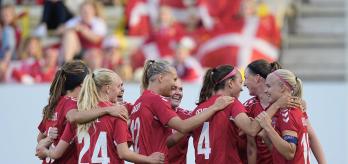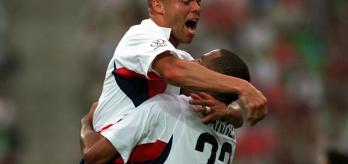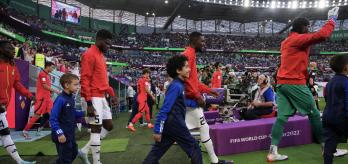The ecosystem analysis
“Everything is connected in our sport. We are all connected. Giving every talent a chance requires everyone to play their part.”
The words of FIFA President Gianni Infantino were quoted verbatim on a recent visit to FIFA’s headquarters in Zurich.
Joe Patit Suphaphongs (FA Thailand General Secretary), Piyapat Saropala (FAT Deputy General Secretary), Carles Romagosa Vidal (FAT Technical Director) were joined by Ms Supranee, Thailand’s National Sports Development Fund (NSDF) Manager and Tira Buyani Kittikorn (NSDF Project Coordinator) to discuss the analysis conducted by FIFA as part of the Global Report on Talent Development.
Over a period of twelve months, a team of high performance specialists conducted a comprehensive assessment of FIFA’s member associations, as well as academies, to gather detailed data about the structures and resources they use to develop their young players.
That data was compiled to produce a global snapshot of the ecosystem in which the world’s young footballers are developed, with each of the 205 participating member associations receiving its own report with concrete benchmarks and recommendations.
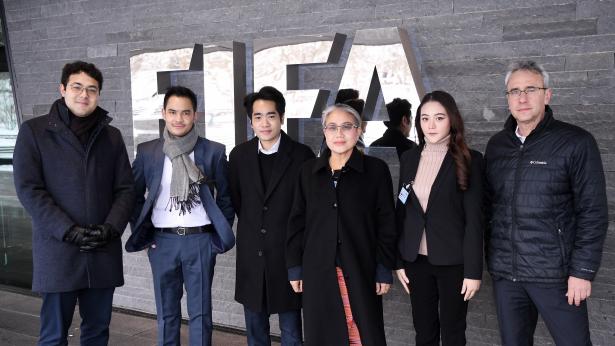
Primary processes
Thailand is a country with a population approaching close to 70 million people, split almost 50:50 between urban and rural communities.
Money can solve some issues. But as FAT’s General Secretary explained, there was a more fundamental process that needed to happen first.
“In Thailand, we had a ‘feeling’ for how we were doing across different disciplines. But the global analysis by the FIFA technical team really gave us a true, objective benchmark for the first time.”
As Thailand’s NSDF Manager, and first ever female in the role, Ms Guptasa is responsible for overseeing the budget to support 89 sports, across the nation’s 77 provinces. Working hand-in-hand with national sports associations, including the signing of a Memorandum of Understanding with the FA of Thailand.
NSDF has identified three core areas to implement its football budget: the development of grassroots; professional football and sustaining league structures, and the national teams.
FA Thailand's analysis
So how did Carles Romagosa Vidal, who had also worked with the Johan Cruyff Institute developing training courses, arrive in Thailand as the FAT Technical Director?
“Working with FC Barcelona and PSG was fantastic, but every 4-5 years, I like to enjoy a new challenge” he said. “Working for a national association, you have the opportunity to reach far more people and have a much wider impact. Which is exciting…but also a huge challenge.”
The Football Association of Thailand’s analysis was conducted by the High Performance team of Kelly Cross and Christos Kanelleas. Talking about the process itself, Kelly told FIFA.com at a recent workshop: “Thailand were one of the first countries ready to work with FIFA. The Technical Director was very keen to participate in the analysis and was anticipating the report because he realised he would receive some good and bad news. But he wasn’t afraid of the bad news. He and his team are embracing the analysis, and Carles knows the report is going to be powerful for him and the FAT. This is a great example for other countries to follow.”

FA Thailand's collaborative method
“My background and the clubs I worked for help me to open some doors. But FIFA’s name and their experts are widely respected” said Romagosa. “Their voice and opinions can sometimes say things in a different way. And this really helps us. Today’s meeting (in Zurich) for example was facilitated by FIFA bringing all parties together.”
This sense of a collaborative spirit is something the FAT’s Technical Director has worked hard to foster in Thailand.
“Our work is exactly like a football team on the pitch” he continued. “It’s a cliché. But everything is connected. Once a week I hold meetings with different sub-departments: Grassroots football; Education; Competitions; Women’s football; Talent ID and national teams. One decision we make can have a knock-on effect in another area, so the key is to work together. Only if you do that, do you have a chance to win.
“You can have the best facilities in the world and invest a lot of money, but if you do not have strong foundations, you will not evolve. We have to start with the grassroots, youth competitions and develop more coaches. If we take care of this structure, we can look to the future with hope. We want to be a member association that becomes known and respected as one of the leading member associations in Asia for developing players. The first step to win, is to play as a team. And if you want to change, everyone needs to change together.”
The final word went to the FAT’s General Secretary Joe Patit Suphaphongs. “The analysis conducted by FIFA was like holding up a mirror. To see where we are right now, so we can see where we want to go. Our work is going to take time. But for every girl and boy who wants to play, we want to put in place a structure to give them the best chance to reach the best level they can.”
Or, in the words of FIFA's own Technical Development team: Give every talent a chance.
